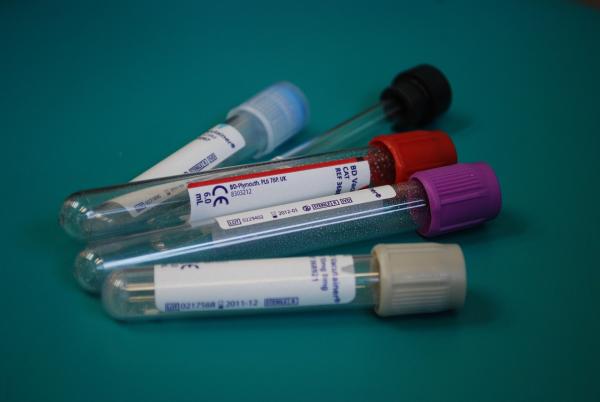What Is FBCA?
If you visit a doctor for a routine physical, they will undoubtedly run some blood tests. Those blood tests usually come back fairly quickly and the doctor will interpret them for you in the patient portal, give you a phone call, and/or provide a follow-up visit for the test results. Either way, the test results are interpreted as part of the care. Functional Blood Chemistry Analysis (FBCA) is a different interpretation of some routine blood tests, claiming to differ from traditional blood test interpretation in two essential ways: what it focuses on and who interprets the numbers.
“The issue isn’t that blood testing is a poor diagnostic tool, far from it. The issue is that the reference ranges used on traditional blood tests are far too broad and based on statistical averages, not whether a certain value represents good health or optimal function for you. As such, conventional blood test interpretation is often inadequate at detecting health problems early on.”
“Optimal” vs. “Normal”
FBCA claims to focus on
- “Optimal” ranges instead of “normal” ranges
- An ability to identify “sub-clinical” issues before they become full-blown disease
- An ability to track disease risk and health indicators over time.
Are these claims really different than typical blood test interpretation? Let’s dissect.
Most blood tests will focus on a target range for a biomarker that is considered “normal.” For example, a normal white blood cell count would fall somewhere between 4,500 and 11,000 white blood cells per microliter. Ranges are important because every person will have slightly different numbers indicating their balance or homeostasis. “Normal,” in this case, suggests that bodily systems seem to be functioning properly.
FBCA emphasizes “optimal” ranges. Optimal implies that it is the “sweet spot, the Goldilocks” of health. Optimal health for one person will differ from that for another individual. Identifying “optimal” ranges for any particular person is a difficult task and still requires those pesky statistics they were so quick to dismiss. To establish “optimal,” the same markers need to be tested several times across many years. Then, using the same statistical methods used in establishing normal ranges for populations, determine an “optimal” range for that person. At this point, it seems that “optimal” versus “normal” is an argument over semantics rather than science or interpretation…
There’s a cartoon that FBCA practitioners and companies love to use. They use it to indicate that if you’re on the low end of normal, then something must be wrong. Being on the lower end of normal may mean that something is amiss. Or, it may just be how that person’s homeostatic “set point.” Some people will naturally be on the low end of a normal range, which doesn’t necessarily indicate a problem, just as some people will naturally be on the high end of normal without a problem. FBCA attempts to convince people that if they exist towards the ends of the spectrum of a normal range, that something must be wrong. Even if you feel fine and all other labs are solidly in the “normal” range, nope! This indicates that you won't be fine at some point in the future. Scare tactics are big in FBCA.
Any blood testing duplicated over time will enable tracking health indicators and disease risk—that’s why and how routine, repetitive testing works. For example, cholesterol is measured during routine physicals to track cardiovascular risk and monitor preventative and therapeutic interventions, including diet, exercise, and medications. The ability to identify “sub-clinical” issues is what many blood tests already do, i.e., Hemoglobin Ac indicating the presence of “pre-diabetes.” At the end of the day, this is no different than conventional blood test interpretation.
Who Interprets Lab Results
The second way FBCA differs from traditional blood tests is actually different: who provides the interpretation. In conventional blood test analysis interpretation, a physician will read and explain the results to a patient. However,
“Functional blood chemistry analysis…is a powerful tool for Naturopathic physicians, chiropractic physicians, practitioners of functional medicine, nutritionists, health coaches, and other members of the healthcare ecosystem to assess patients, identify dysfunction, and treat it early.” –Optimal DX
This should raise a whole lot of red flags. The scope of practice for naturopaths, chiropractors, nutritionists, and health coaches does not allow them to order laboratory testing, nor are they trained in their interpretation. FBCA takes laboratory blood testing ordered and interpreted by a physician, nurse practitioner, or physician assistant, then hands those results to a person who cannot order the tests nor is trained in their interpretation. They will then ask for your hard-earned money for their unprofessional interpretations and opinions.
It doesn’t stop there, though. The aforementioned providers can recommend specific tests (including over 100 different biomarkers!), and you have to convince your physician to order them. After the requested tests have been run and your physician has explained the results to you, someone fluent in FBCA speak will reinterpret the results for you, undoubtedly finding all sorts of “concerning” biomarkers that “indicate” you’re at less than “optimal” health. Sounds legit!
Those FBCA explanations are not free. You will have out-of-pocket costs anywhere from $50 to over $700 for those reinterpretations. But, inevitably, there will be further recommendations, such as supplements, and “proprietary blends” that only they can provide.
FBCA is more than just the analysis; it is a growing business in “training” people in FBCA techniques and interpretations. There are many courses that “teach” you FBCA analysis, such as at the American College of Healthcare Sciences, Optimal Dx, and Master Blood Chem with Em. These non-accredited courses will set you back anywhere from $230 to $2200. Even the American College of Healthcare Sciences clarifies that this is a “micro-credential” not eligible for academic credit.
Make no mistake, FBCA offers no new insight into your health. It’s paying for a service already covered by insurance and performed by a physician. Beyond that, it’s a service provided by people not qualified to order or interpret blood tests. It’s just another way wellness is used to separate you from your money.




